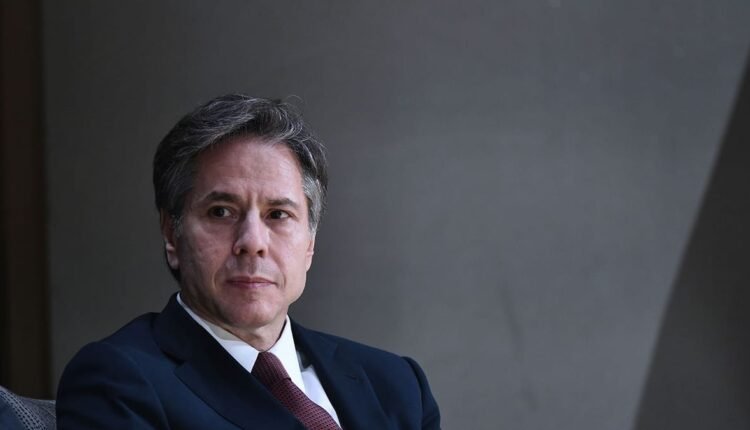Starting in Mid-August: What are the Challenges Facing the US Call for Negotiations Between Sudanese Army and RSF?

Al-Gedarif – Telal Ismail – Sudanhorizon
Awaiting a new round of negotiations between the Sudanese army and the Rapid Support Forces Militia aimed at achieving a ceasefire during the coming month of August, many challenges and obstacles emerge that may prevent its launch.
On Tuesday, US Secretary of State Anthony Blinken said in a statement that Washington “invited the Sudanese Armed Forces and the militia to participate in talks on a ceasefire, mediated by the United States, starting on August 14 in Switzerland.”
Blinken added that the talks, which are also sponsored by Saudi Arabia, will include the African Union, Egypt, the Emirates, and the United Nations as observers.
However, the Sudanese army did not respond to that invitation, while the militia rushed to accept it.
Several challenges emerge regarding the success of the invitation and the emergence of promising results. The governor of Darfur, Minni Arko Minawi, said in a tweet on the platform, questioning the militia: “Killing citizens and destroying cities in order to start negotiations”!!
Pointing out in his tweet that the Rapid Support Forces militias “began to resume shelling civilian neighborhoods, killing more than twenty citizens in El Fasher after they received a quantity of missiles to pressure them to sit in negotiations with the blood of innocents, in order to prepare for the return to what it was before April 15.”
Manawi continued: “We welcome peace that restores the dignity of the citizen, not blackmail with the aim of turning back the clock.”
The American invitation was welcomed by the Coordination of Civil Democratic Forces “Progress” headed by Abdullah Hamdok.
It said: “We hope that this initiative will result in an urgent cessation of fighting (between the army and the Rapid Support Forces) through serious engagement and full commitment from all parties.”
On Friday, the National Consensus Alliance, led by Mubarak Al-Fadil Al-Mahdi, announced its welcome of the American invitation, saying: “The National Consensus Alliance welcomes the invitation announced by the American administration to engage in negotiations to stop the war in Sudan and deliver humanitarian aid to citizens in Geneva, with joint mediation between America, Switzerland and the Kingdom of Saudi Arabia, and in the presence of the United Nations, the African Union, the Arab Republic of Egypt and the United Arab Emirates.” He continued: “The call for Geneva talks comes in light of the war’s exhaustion of its goals with the failure of the Rapid Support Forces’ attempt to seize power, its failure to destroy the Sudanese army, and its refusal to implement its pledges in the Jeddah Agreement on May 11, 2023, to evacuate citizens’ homes, hospitals, and civilian objects, in addition to the Rapid Support Forces expanding its attacks on civilians in the safe villages of Al-Jazeera State and the cities of Sennar State, Jebel Moya, Singa, Al-Dinder, and Al-Suki, and the villages of White Nile State, and the cities of West Kordofan State, in addition to its continuous bombing of civilians, medical facilities, and service facilities.
He added: “The call clearly separated negotiations on the political path for the future of governance in Sudan from negotiations on arrangements to stop the war and deliver humanitarian aid, which is a necessity that would strip the Rapid Support Forces militia of bargaining over a share of power in exchange for evacuating citizens’ homes and civilian objects, as it has continued to do in all negotiations.
The National Consensus Alliance stressed that the political track and the political process for managing the transitional period are a purely Sudanese affair that concerns the political and societal forces, and are being discussed by the Sudanese-Sudanese dialogue, and its first building block is what was reached at the Cairo Conference held last July, and the African Union Conference in Addis Ababa held from 10 to 15 July, to lead to the formation of a civilian government and a short transitional period that leads the country to a democratic civilian state through free and fair elections.
He pointed out that any negotiation process that does not remove the militia from the cities and citizens’ homes and allows the displaced and refugees to return to their homes will not end the war in Sudan, but rather the war will expand more widely and turn into a regional war.
For his part, the leader of the Freedom and Change – Democratic Bloc, Mubarak Ardol, said: “It is important to accept the invitation submitted by the US State Department to negotiate in Geneva, on the security and humanitarian tracks only, as this is an opportunity that should not be wasted under any justifications.”
He added: “The humanitarian situation is not waiting for one thing, as there are cases of malnutrition that have begun and a death from hunger has been recorded in South Kordofan. This problem must be addressed quickly, also by taking advantage of this platform.”
Since May 6 of last year, Saudi Arabia and the United States have been sponsoring talks between the army and the “militia,” which culminated in an agreement in Jeddah, Saudi Arabia, between the two sides to commit to protecting civilians, before the Sudanese army accused the militia of not implementing the agreement, which later led to the suspension of negotiations.
Comment by the US Envoy
US Special Envoy for Sudan Tom Perriello said: “I held valuable consultations with the League of Arab States and the Secretariat of the Intergovernmental Authority on Development (IGAD) at the second consultative meeting in Djibouti, focusing on solutions to the crisis in Sudan.
He continued: “We will continue to benefit from their leadership, advice, and partnerships as we prepare for the upcoming ceasefire negotiations and continue to push for full access to humanitarian aid.”
Shortlink: https://sudanhorizon.com/?p=610

